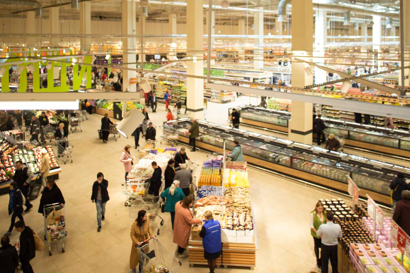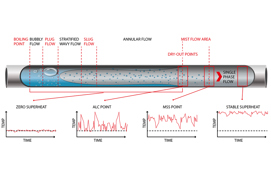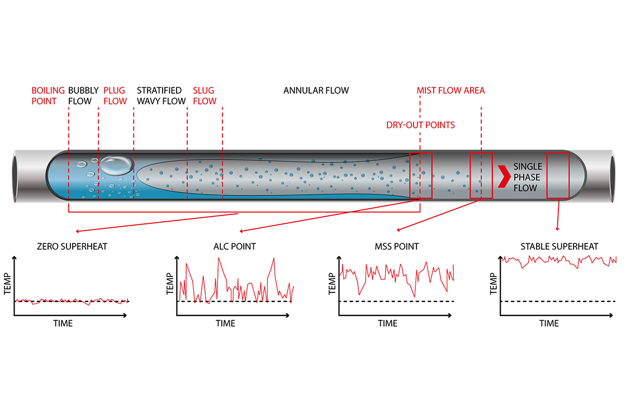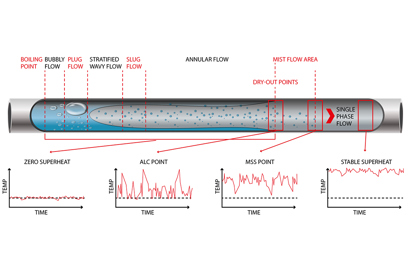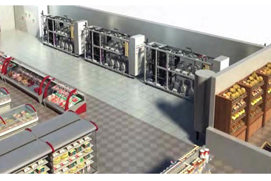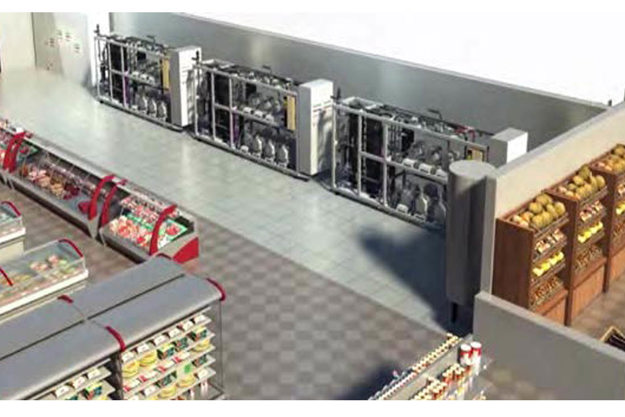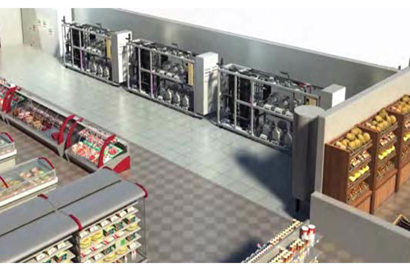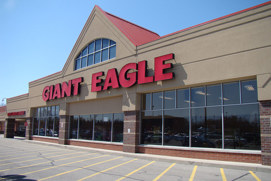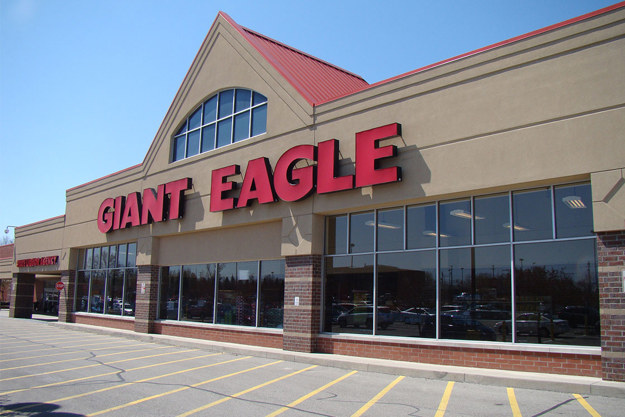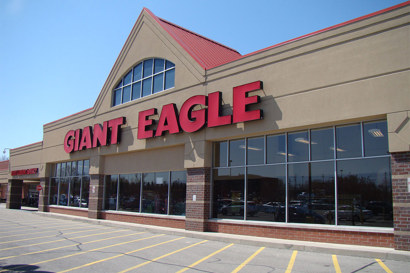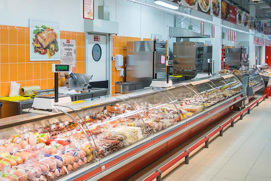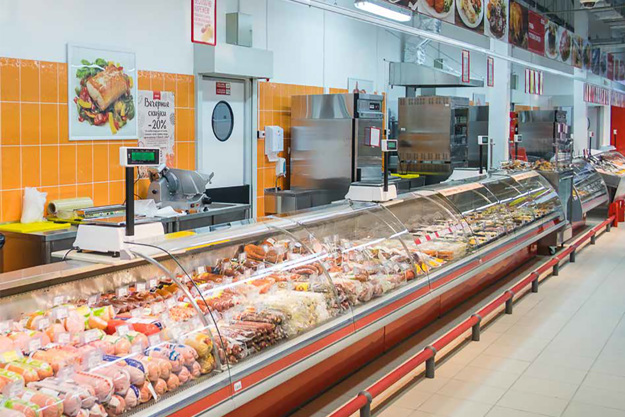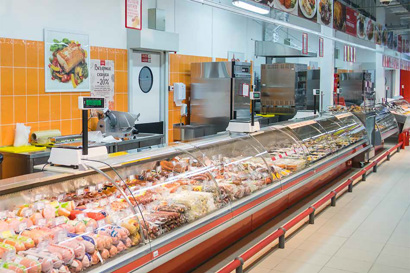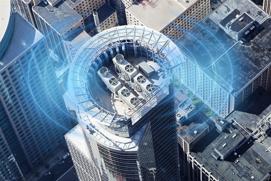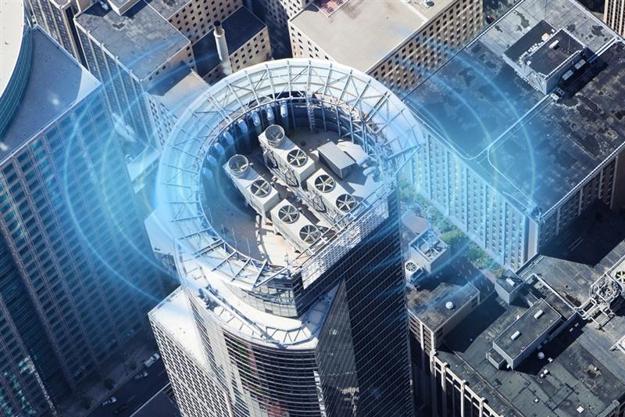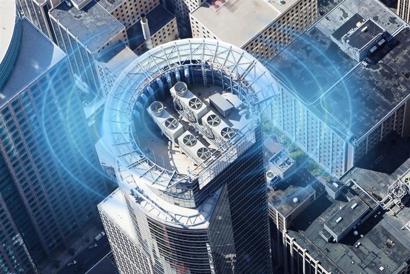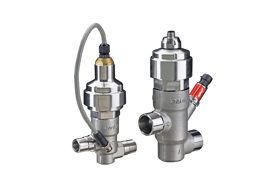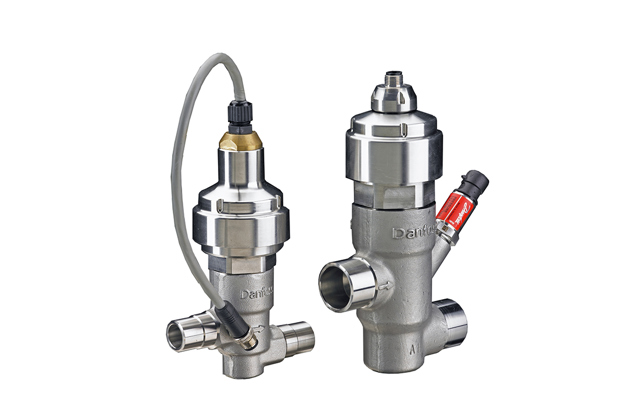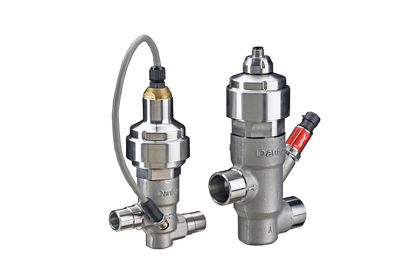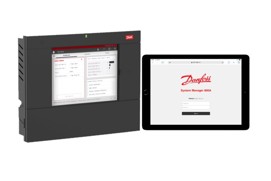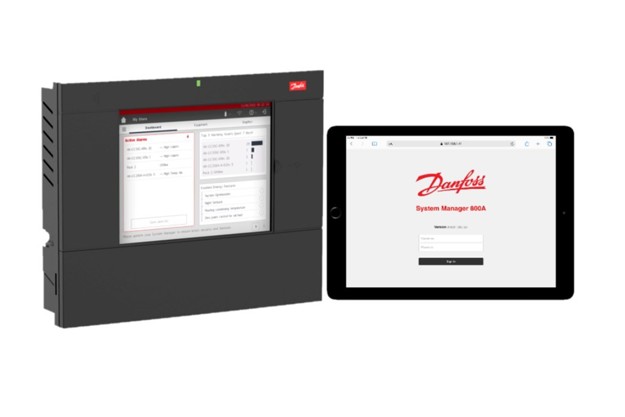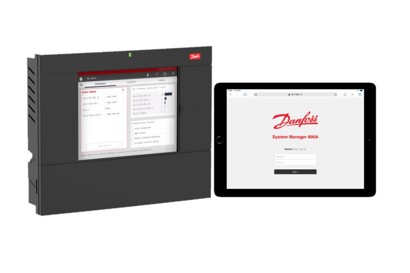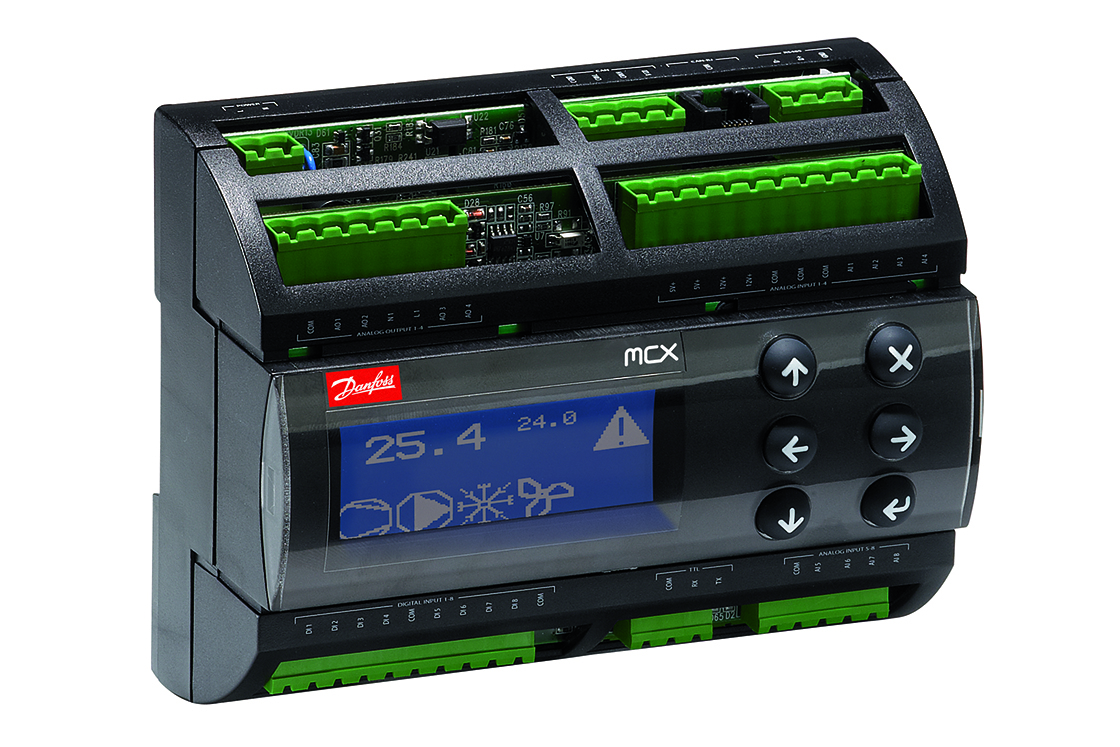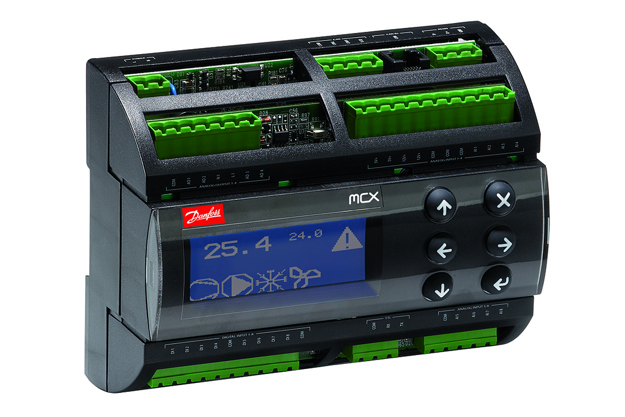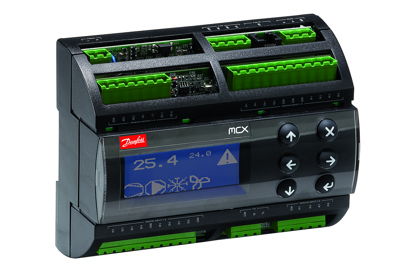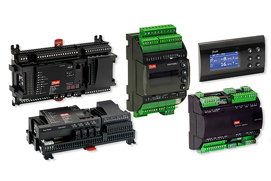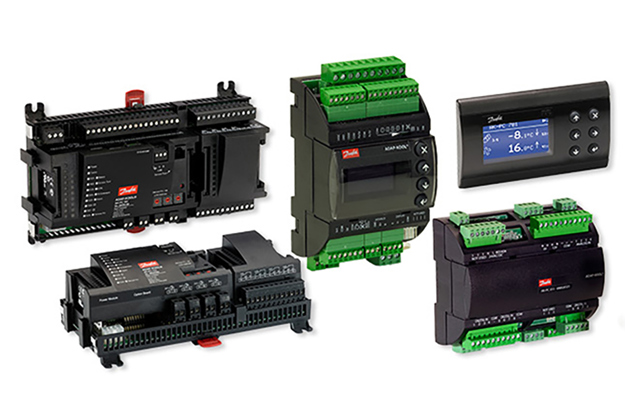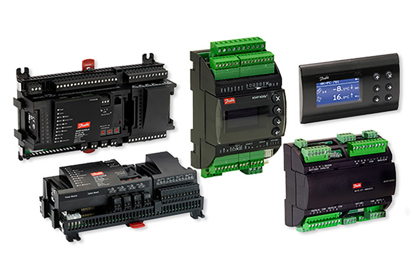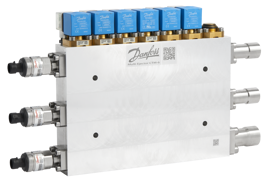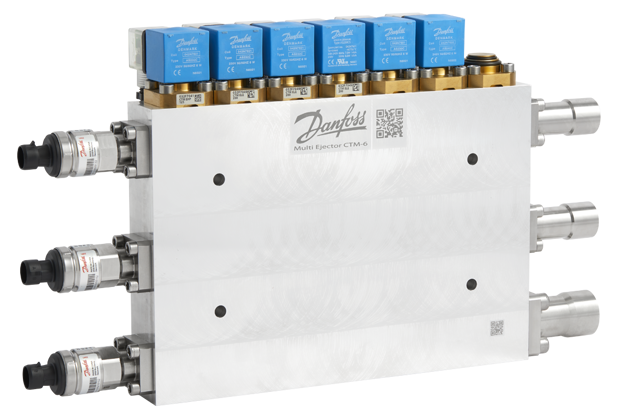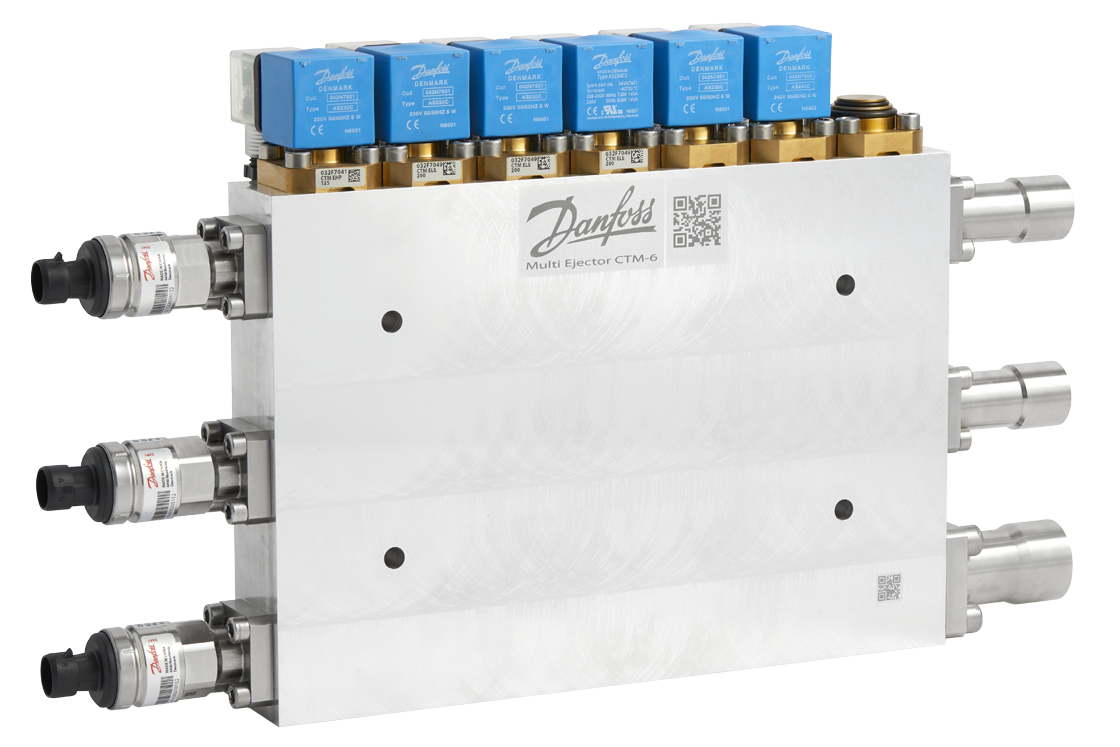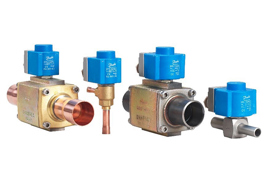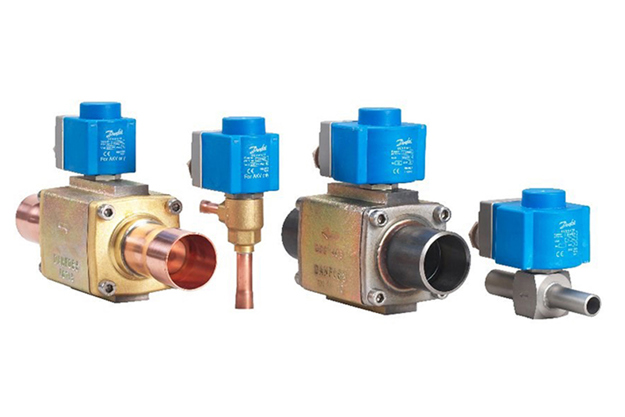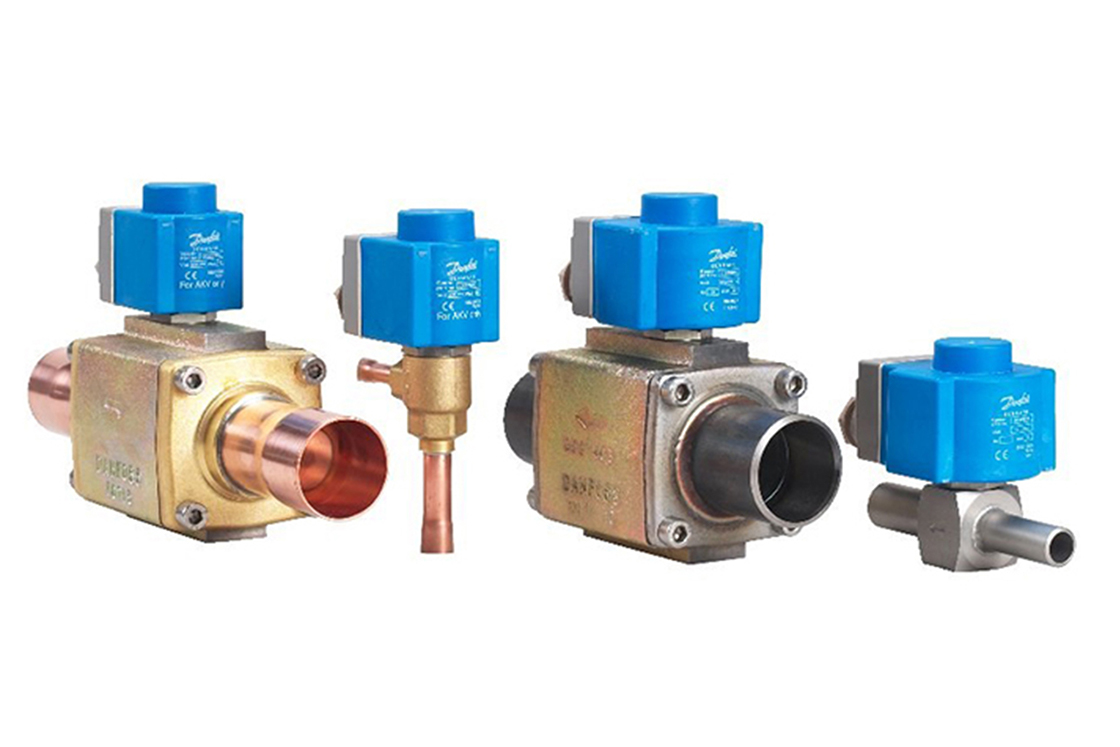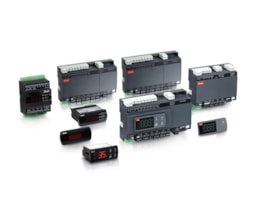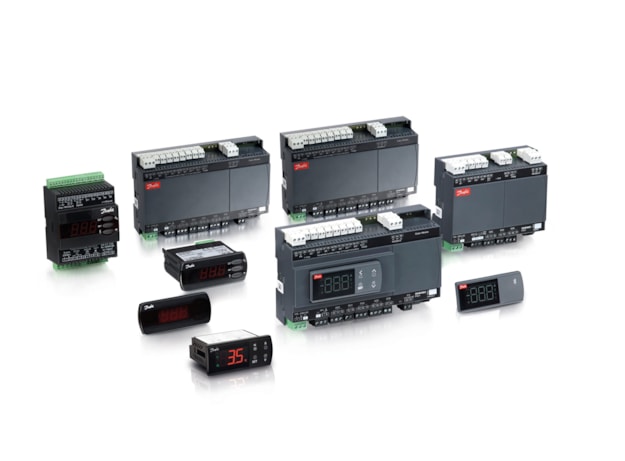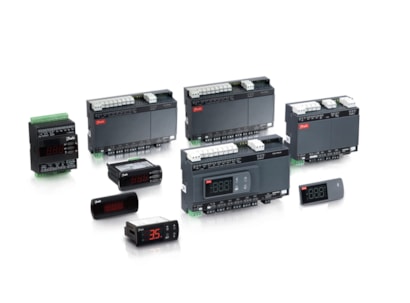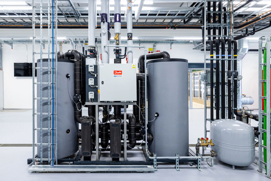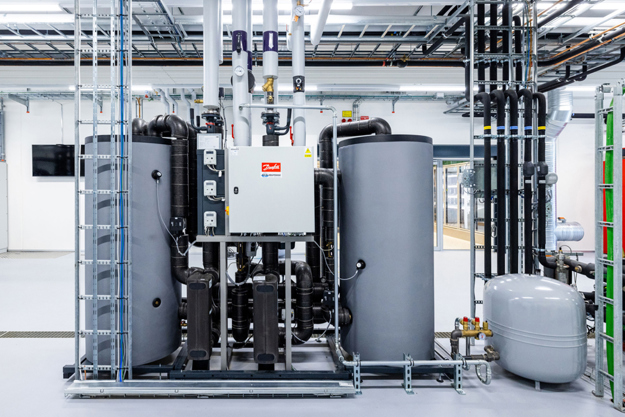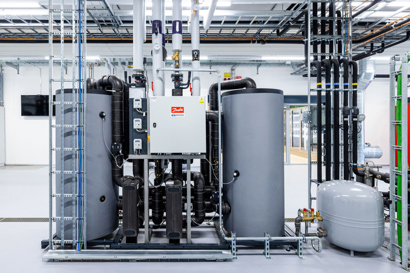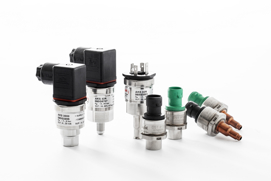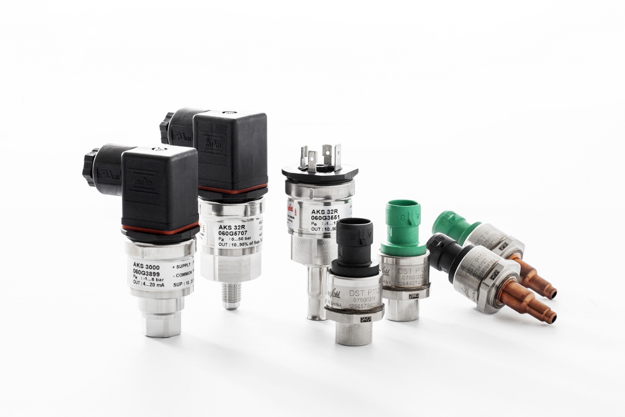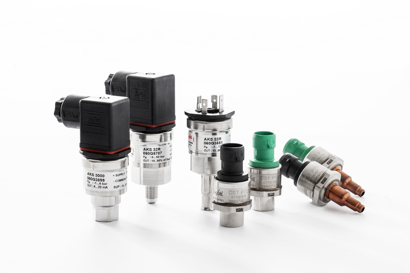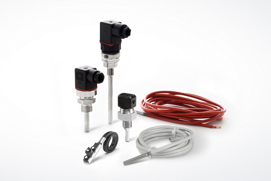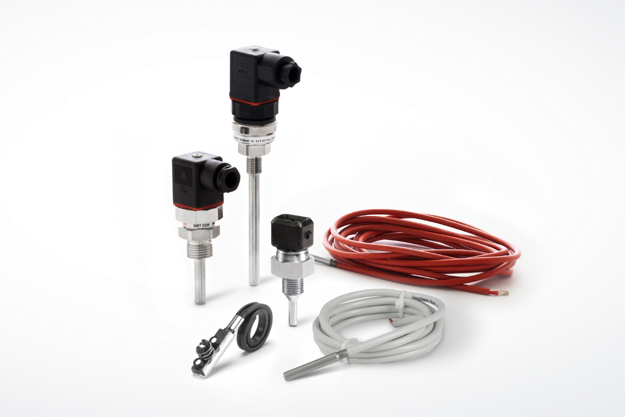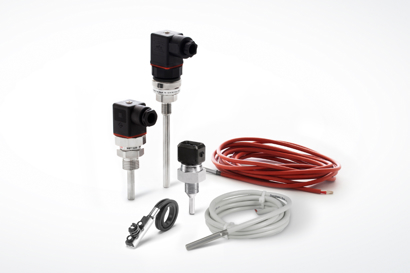A unique supermarket
On June 29th the COOP 365 Smart Store opens for the public for the first time. In the Danfoss Smart Store the cooling and heating technologies are in operation 24/7. It’s not a laboratory simulating real-life operation. Customers open cabinet doors hundreds of times a day and every time it puts demand on the cooling and heating of the supermarket. The Danfoss Smart Store demonstrates our available solutions in action.
BALS, Brugsforeningen for Als and Sundeved, Denmark’s largest independent supermarket association, will rent the building from Danfoss and will install a COOP 365discount supermarket. BALS, which works together with COOP, has a total of 13 stores in the area around Sønderborg in Denmark and since 2015 has consistently reduced the consumption of energy in its stores. So far, they have cut 44 percent of their total CO2 emissions. Therefore, it was a natural next step that BALS became a partner in the project.
Lars G. Andersen, managing Director of BALS, says:
“We already have a lot of experience, but the energy price spikes have put further pressure on the need for change. Our 13 supermarkets have been modernized, and we have nearly no cost for heating in the stores because the heat comes from our freon-free refrigeration systems, solar cells, and heat pumps. It is an advantage with the current energy prices, and it reduces our CO2 emissions. We are proud to be part of one of the most energy-efficient supermarkets in the world and test the solutions that can help buildings become climate neutral.”

New ‘Smart Store’ paves the way for 21st century supermarkets
New “Smart Store” will work as Danfoss’ test center for energy efficiency technology. ‘The Smart Store’ is expected to be approximately 50% more energy efficient compared to a typical supermarket with a first-generation CO2 refrigeration system.
Scalable technologies
The installations and technologies in the supermarket are scalable. They can be applied in the smallest store up to the biggest hypermarket.
The supermarket cooling (refrigeration and comfort cooling) systems run exclusively on natural refrigerants (CO2). CO2-based refrigerants do not deplete the ozone layer and have the lowest possible Global Warming Potential (GWP) score. In addition, CO2 refrigerants outperform traditional HFC-systems when it comes to energy efficiency in different weather conditions.
The supermarket is equipped with a heat recovery unit capturing excess heat from the cooling systems to provide space heating for the entire store as well as the surrounding community through the district heating network. The heat recovery unit, can by re-using the excess heat from the cooling system, reduce the external heat requirement with up to 89,7%. Furthermore, the energy pack can supply additional heating and cooling when needed.
Smart energy systems applied
100 KW solar panels on the roof help to optimize store operations. On sunny days, solar energy can be accumulated in the freezers. Turning the temperature in the freezers further down from e.g., -18 to -25 help accumulate solar energy ( while reducing battery storage). When the solar panels are less efficient due to no sun the temperature rises back to normal settings.
Co-developing with customers
The supermarket has two separate refrigeration systems installed that run independently of each other. Therefore, operations of a supermarket continue while Danfoss co-develops new solutions with customers. And when future applications are being tested, the cooling cabinets and freezers stay cool.
Certifications
DGNB Gold (EU)
LEED Platin (USA)
The final certifications can only be obtained after six months of operations.
The Smart Store provides inspiration for building DGBN / LEED certified supermarkets showcasing that it does not require a lot of extra resources to ensure that the building is healthy, future proof, and positively impacting the surrounding community.
Biodiversity
In order to positively impact the local biodiversity several initiatives have been taken. Very visible mega pergola surrounding the building which will be watered by use of collected rain- and surface-water. Also, different native grasses as well as a ‘green roof’ will be planted to create a micro-environment for biodiversity.
Cooling and heating capacity for 1,500 m2 store and 250 m2 ADC
30 kW medium temperature
13 kW freeze - low temperature
20 kW comfort cooling/ventilation for store and ADC (additional 20 kW from roof-top chiller)
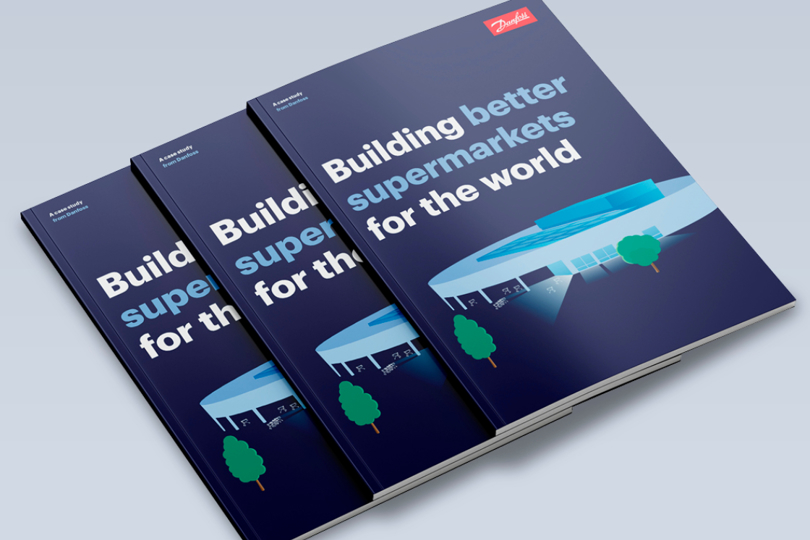
Getting supermarkets to net zero
With the world’s population expected to reach 10 billion people by 2050, sustainable food retail and storage are more important than ever. Yet this is an often-overlooked step in the decarbonization of society.
Contact us
Want to experience real supermarket efficiency?
Reach out to us if you are interested in visiting our SM ADC and see real live.
Case studies
-
if (isSmallPicture) {


 KrioFrost Creates Russia’s Largest Transcritical CO2 Hypermarket System Using Danfoss Solutions
KrioFrost Creates Russia’s Largest Transcritical CO2 Hypermarket System Using Danfoss SolutionsGlobus had an ambitious target: to open the new 25,000 square meter hypermarket using transcritical CO2 for its refrigeration and heating. Danfoss helped KrioFrost—a Moscow-based refrigeration equipment producer and installer—to equip Globus’ huge new store in the Moscow suburb of Salaryevo with the company’s first transcritical CO2 booster refrigeration system.
-
if (isSmallPicture) {


 The Danfoss Multi Ejector range for CO2 refrigeration: design, applications and benefits
The Danfoss Multi Ejector range for CO2 refrigeration: design, applications and benefitsDanfoss offers a complete portfolio of gas and liquid ejectors that provide significant benefits in CO2 refrigeration applications. Here we take a closer look at these offerings: the Multi Ejector Low Pressure (LP), the Multi Ejector High Pressure (HP), and the Liquid Ejector (LE). All three ejector products are only available as a complete Multi Ejector Solution™ where the ejector is bundled with the AK-PC 782A pack controller to provide the robust system controls necessary for efficient and reliable operation.
-
if (isSmallPicture) {


 Selecting the right evaporator injection algorithm makes a world of difference
Selecting the right evaporator injection algorithm makes a world of differenceDanfoss has pioneered two control algorithms that help you achieve this balance. The Minimum Stable Superheat (MSS) algorithm has been an important part of the Danfoss ADAP-KOOL® offering for years and is still the ideal choice for adaptive evaporator control for dry expansion. Now Danfoss introduces the next generation: Adaptive Liquid Control (ALC).
-
if (isSmallPicture) {


 Intelligent and adaptive control in transcritical CO2 refrigeration
Intelligent and adaptive control in transcritical CO2 refrigerationIntelligent control solutions are important for achieving reliable, optimized operation and realizing financial savings and environmental
benefits in your transcritical CO2 refrigeration solution. -
if (isSmallPicture) {


 Danfoss helps transform supermarkets into smart stores for demand response
Danfoss helps transform supermarkets into smart stores for demand responseWith an IoT-enabled demand response program utilizing Danfoss controllers and system managers, supermarket chain Giant Eagle is able to enhance food safety, detect malfunctioning equipment and reduce costly energy waste.
-
if (isSmallPicture) {


 Russia’s first transcritical CO₂ hypermarket
Russia’s first transcritical CO₂ hypermarketIn Voskresensk, Russian retailer Magnit has opened the first hypermarket in Russia using a transcritical booster refrigeration system with carbon dioxide (CO₂) — an eco-friendly and natural refrigerant.
Related applications
-
if (isSmallPicture) {


 Condition monitoring of HVAC/R systems
Condition monitoring of HVAC/R systemsIn air flow and indoor air quality-related applications, condition monitoring functionality improves system uptime and competitiveness by preventing issues before they occur.
Highlighted products
-
if (isSmallPicture) {


 CCMT electric regulating valves, transcritical CO₂
CCMT electric regulating valves, transcritical CO₂The CCMT is an electric operated valve designed specifically for operation in CO2 systems. The valve is capable of functioning either as an expansion valve, as a pressure regulator for the gas cooler or as a gas bypass valve with back-pressure regulation in trans-critical or subcritical applications.
-
if (isSmallPicture) {


 System managers
System managersThe system manager is the key component of the intelligent Danfoss ADAP-KOOL® refrigeration system for food retail.
-
if (isSmallPicture) {


 Programmable controllers - MCX
Programmable controllers - MCXDanfoss’ range of universal MCX programmable controllers offers the functionality and reliability you need to get the best out of your heating, ventilation, air-conditioning and refrigeration (HVAC/R) equipment.
-
if (isSmallPicture) {


 Compressor and condenser controllers
Compressor and condenser controllersDanfoss offers a range of compressor and condenser capacity controls for use in food retail, in compact systems as well as in large power packs.
-
if (isSmallPicture) {


 Multi Ejector Solution™
Multi Ejector Solution™The Danfoss Multi Ejector Solution™ ensures that transcritical CO₂ applications for retailers become energy efficient in any climate.
-
if (isSmallPicture) {


 AKV electric expansion valves
AKV electric expansion valvesAKV are electrically operated expansion valves designed for refrigerating plants. The AKV valves are normally controlled by a controller from Danfoss’ range of ADAP-KOOL® controllers.
-
if (isSmallPicture) {


 Evaporator and room control
Evaporator and room controlDanfoss offers a range of evaporator controls with thermostatic expansion valves or with electric expansion valves.
-
if (isSmallPicture) {


 Evaporator and room control
Evaporator and room controlDanfoss offers a range of evaporator controls with thermostatic expansion valves or with electric expansion valves.
-
if (isSmallPicture) {


 HRU - Heat Recovery Unit
HRU - Heat Recovery UnitThe Danfoss Heat Recovery Unit helps to eliminate the technical challenges of managing heat recovery.
-
if (isSmallPicture) {


 Air Conditioning & Refrigeration Pressure Transmitters
Air Conditioning & Refrigeration Pressure TransmittersRefrigeration pressure transmitters are used for commercial air-conditioning and for commercial and industrial refrigeration applications. They are made in stainless steel to be compatible with fluorinated and natural refrigerants and laser welding with no soft seals ensure hermetic tightness for decades.
-
if (isSmallPicture) {


 Refrigeration temperature sensors
Refrigeration temperature sensorsRefrigeration temperature sensors are used for applications within air-conditioning as well as commercial and industrial refrigeration applications. The Pt 1000 sensor element meets the DIN/IES 751 class B requirements and ensures an accurate and reliable temperture signal applicable for regulation, safety and data logging.



